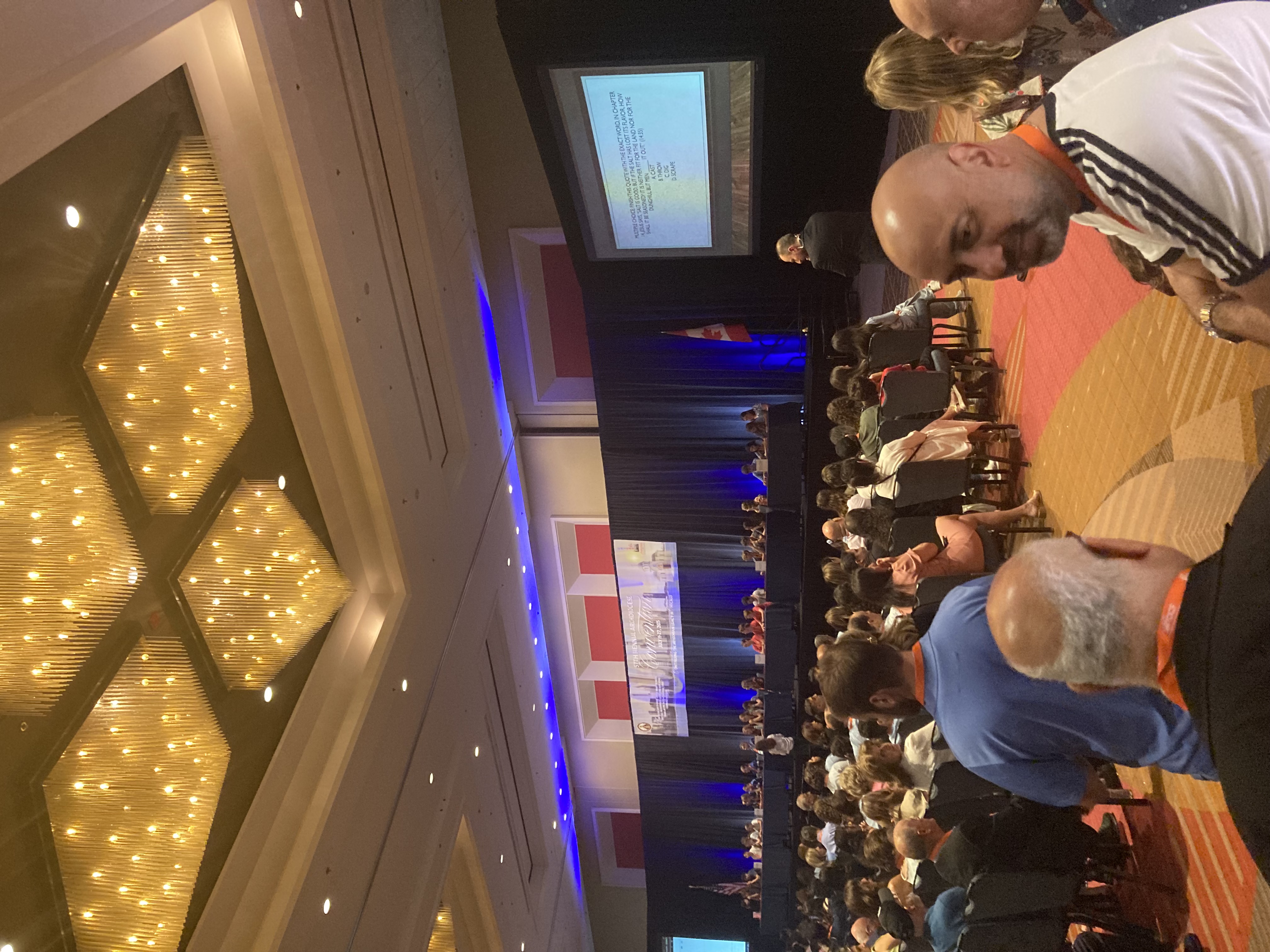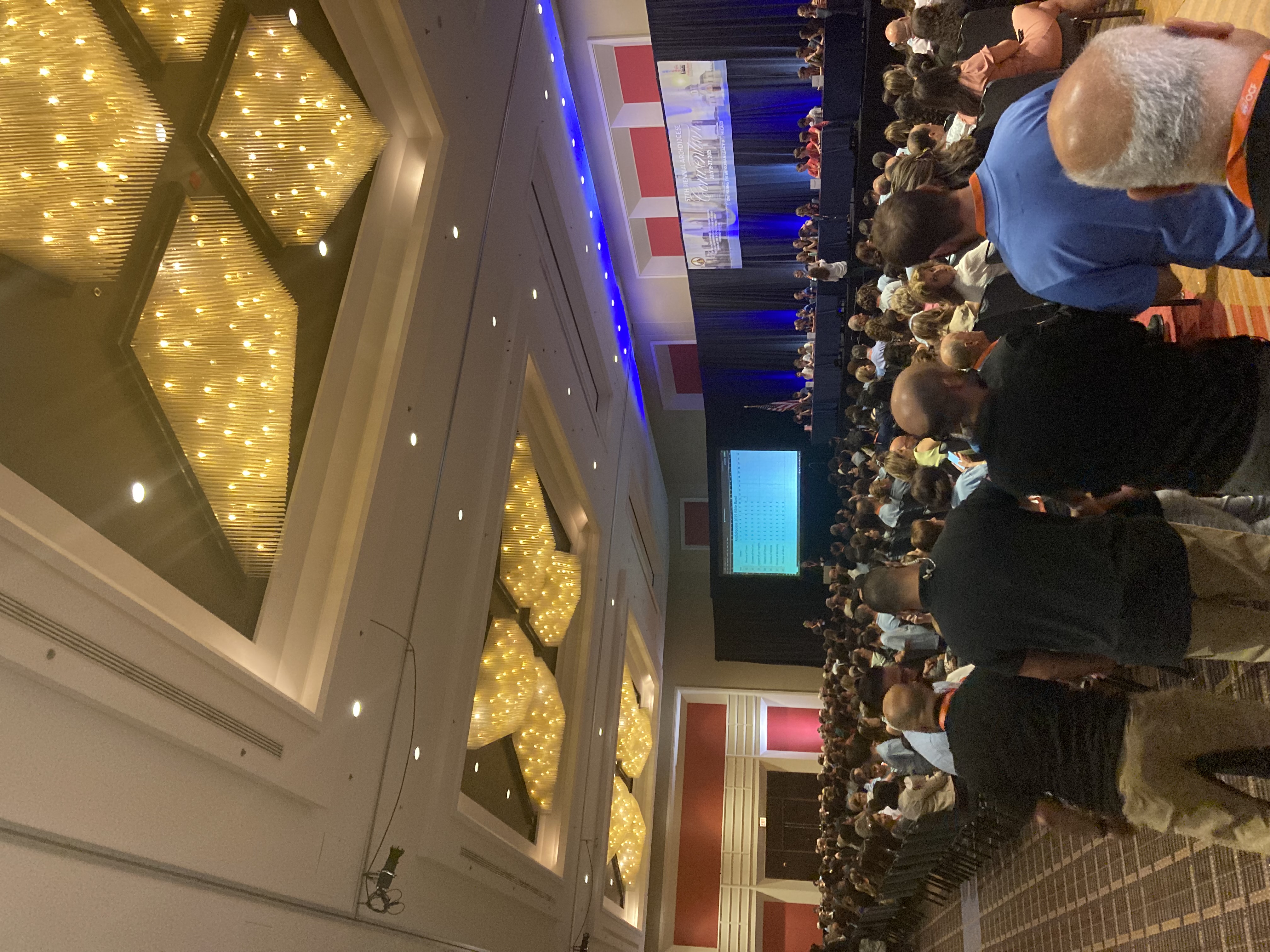The Archdiocese Convention
\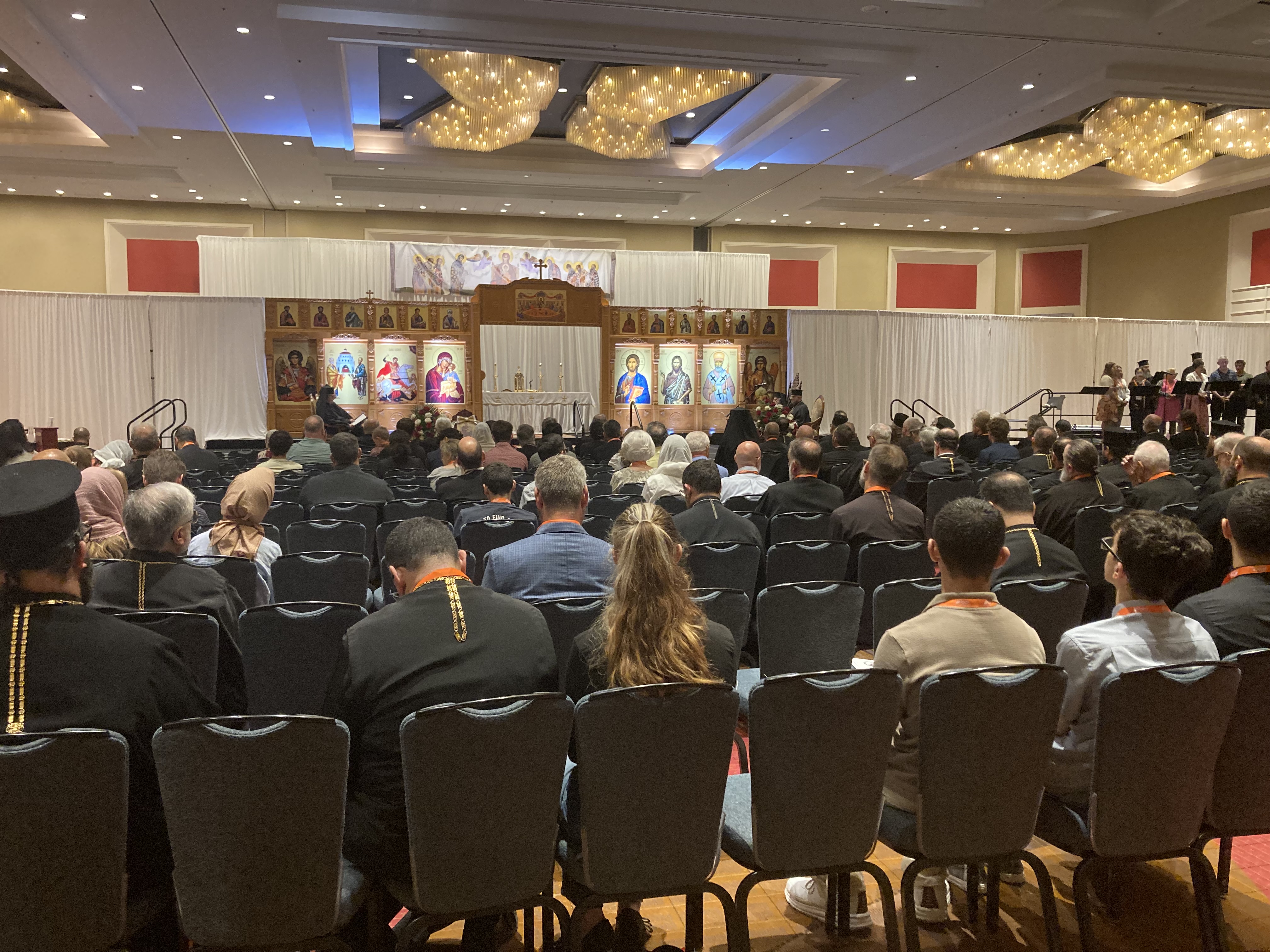
Last week I spent some time at the Archdiocesan Bi-Annual Convention in Chicago. In order for an organization, a church or a family to function well there needs to be communication. Communication is essential for the health of our Archdiocese and this convention is part of how the nearly 300 parishes of the Archdiocese can be on the same page.
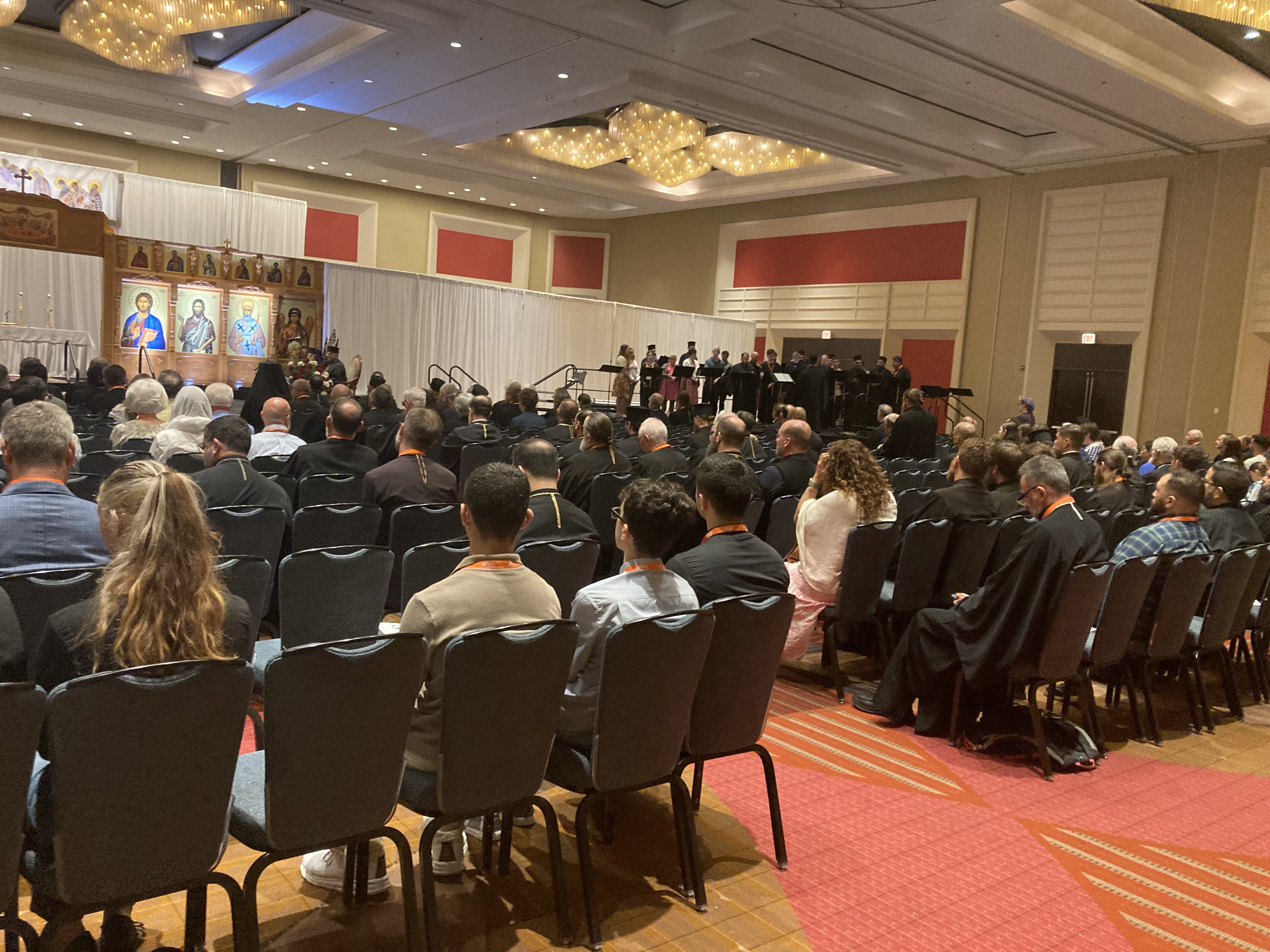
Sometimes I get questions of what actually goes on at these conventions so I thought I would share. Each day begins with an orthros service that is about an hour and 15 minutes long. This service is followed by a sermon by one of my brother priests. After this service there is time to get a later breakfast if you haven’t already. This break is followed by events and workshops which include things such as: Finance, Family, Education, Orthodox Homeschool Initiatives, Order of St Ignatius, Alumni events for the different seminaries, Teen SOYO, Young Adult Ministry and Liturgics. After these workshops comes Vespers.
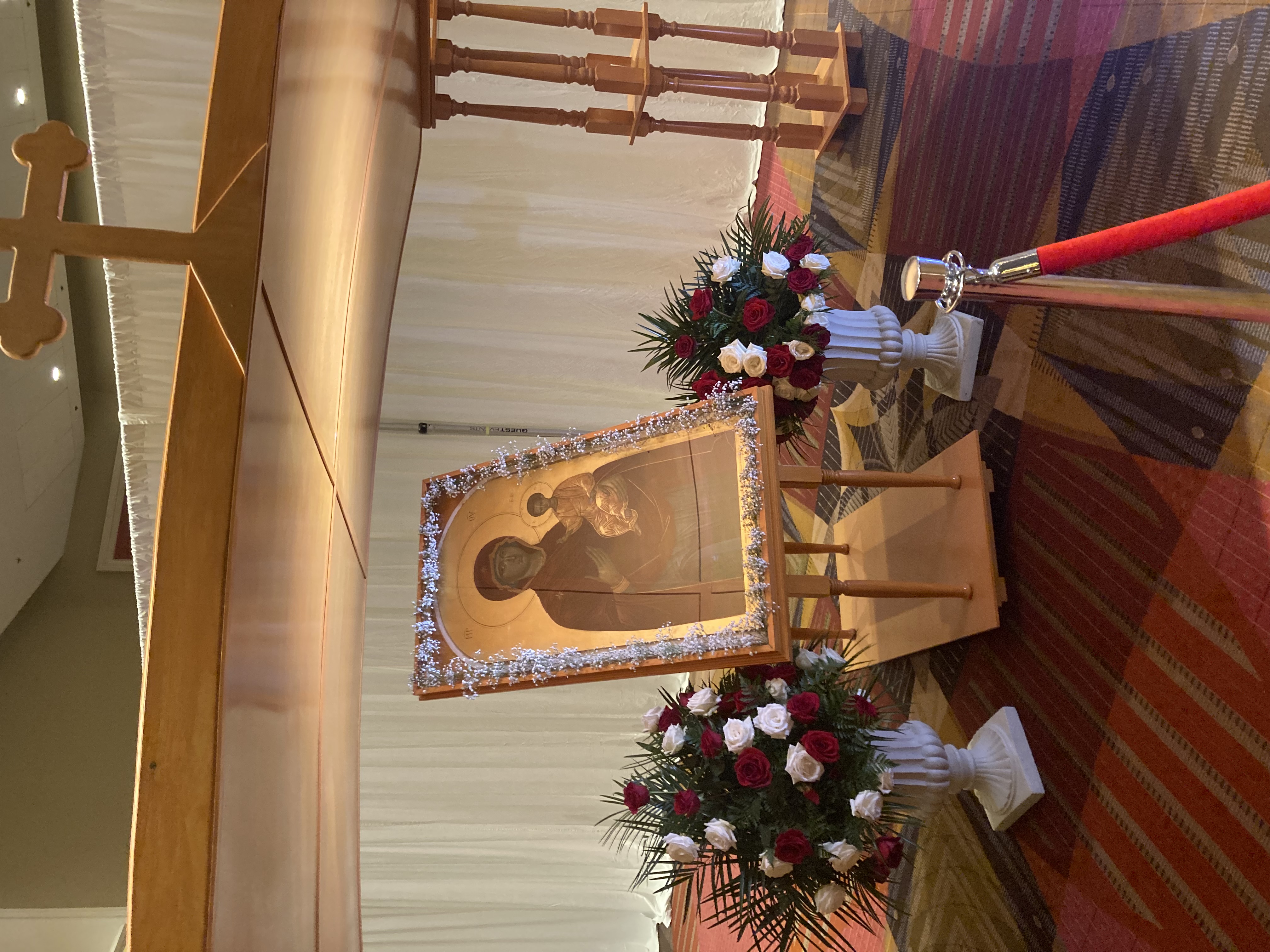
The evenings are usually dedicated to fellowship. These evenings see events for the Teens, Young Adults, and Families AS WELL AS the Bible Bowl and the Oratorical Festival—both great joys and much fun. This fellowship time is a wonderful blessing! I am able to strengthen my established relationships and build new relationships with my brother priests.
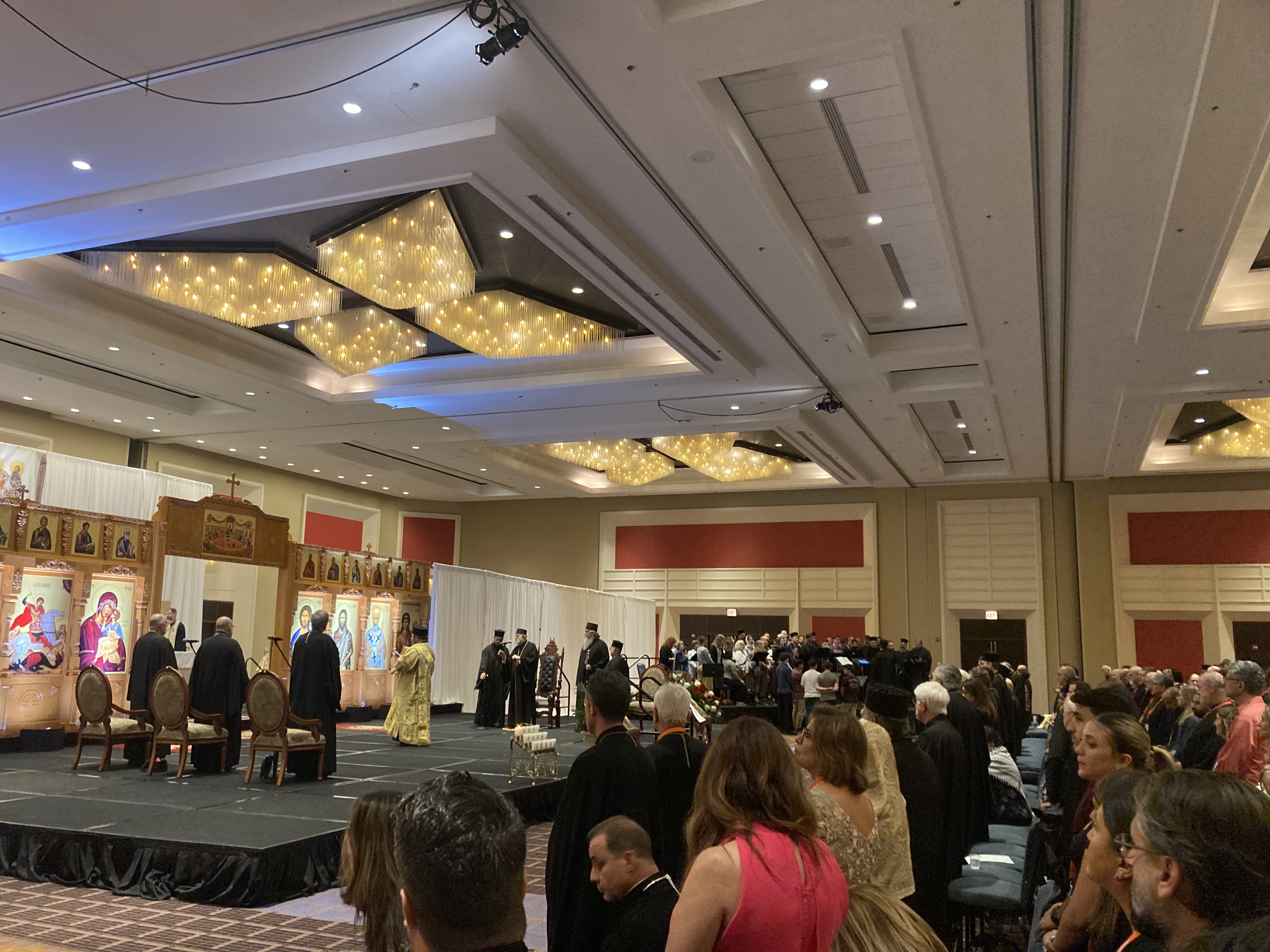
One of the biggest things on the schedule is the “Archdiocesan Assembly” where the different organizations and committees of the Archdiocese give their annual reports. As part of the Assembly this year me and some of my brothers were asked to speak about our trip to Lebanon and Jordan. It was a blessing to be able to share and it was very well received. The highlight of the assembly is the address of Metropolitan Saba—below are some of the key points that he made in my mind:
Sayidna began his address in speaking about suffering—especially the suffering of Christians in the middle east—and exploring how we deal with suffering. He started with Romans 8:28—all things work together for good for those who love God and are called according to His purpose. He said it is incumbent upon us to accept all things as from God. We do this through giving thanks for all things—good and bad. This thanks is what it means to be a Christian.
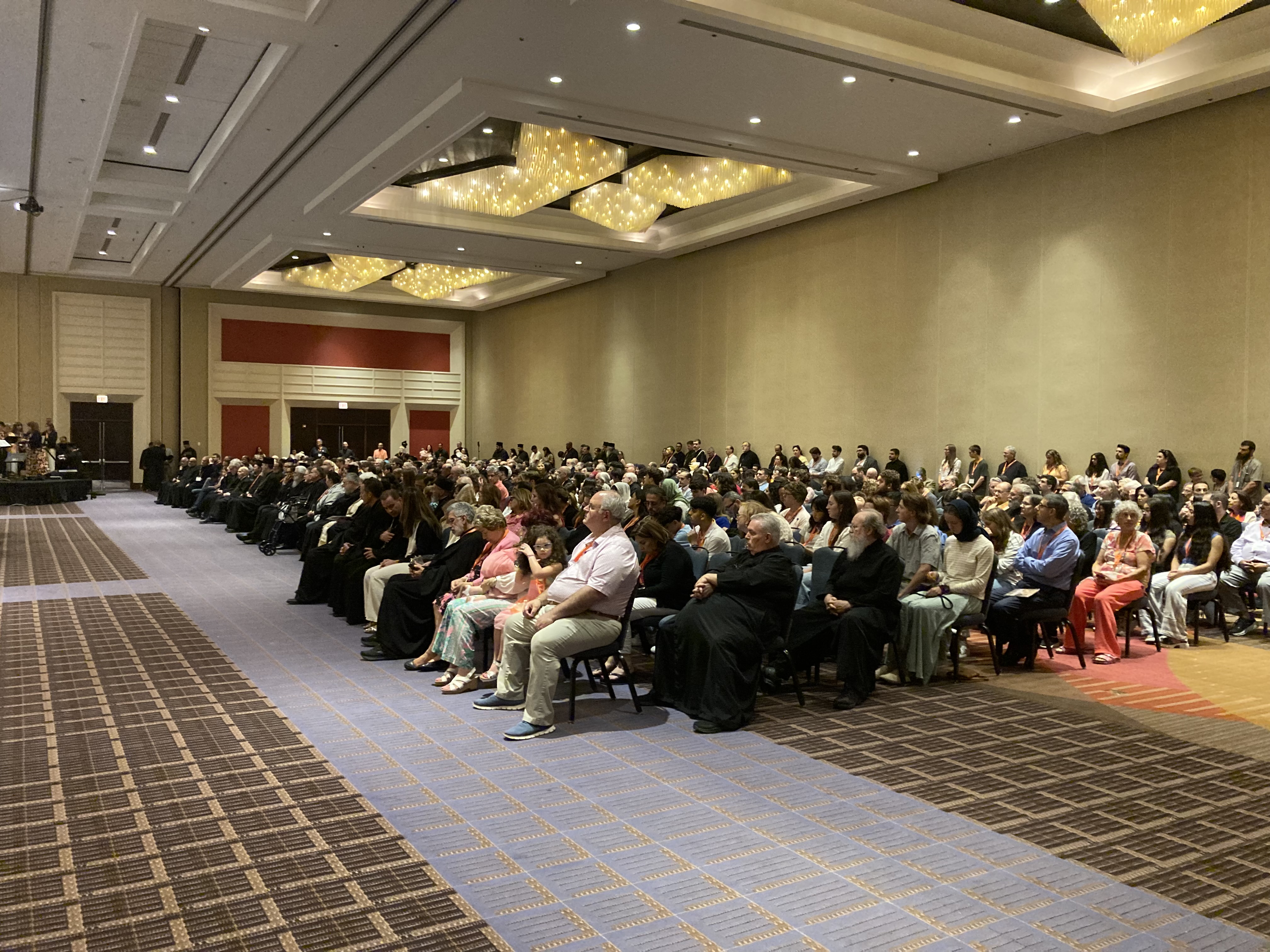
Sayidna went on to discuss the blessings and challenges of the Archdiocese. Some of the things that he highlighted included:
We ought to be sensitive to the questions of our youth and really listen to them and their needs and help them to understand that the Church is not for when they “grow up”—it is for them NOW!
He talked about how important it is for us to increase our pastoral ministry. Part of the main way this can happen is through encouraging the vocation of the diaconate for those who’re qualified. He would like to see new ministries for elderly care, counseling for addiction and counseling for marriage among other things. He wants to establish a standard catechism for the influx of those converts who want to enjoy and experience the abundant life in the Orthodox Church. He wants the Archdiocese to invest in land and real estate.
He wants to establish an endowment for clergy in need and funds for dedicated itinerant priests to gather the scattered flock over large spread out areas without churches.
He wants to grow the use of our Archdiocoese publications for teaching—The Word Magazine and Joy Magazine
He would like to establish Monastic life in the Archdiocese. Our first Monastery has been established in Memphis, TN and Godwilling we will make a pilgrimage to this Monastery in 2026 for those who are interested in our Parish.
In all of these things Sayidna wants us to take the approach of, “If our plans succeed—this is a sign of God’s blessing—if they do not, then we move on.” I can add that this approach is something I witnessed in Lebanon and Jordan—an approach which is very liberating and encouraging. It is good for us to plan and try to make a positive impact asking for God’s blessing and leaving our hands and hearts open to what He desires for us.
